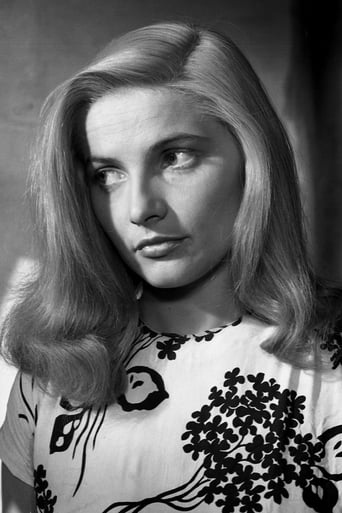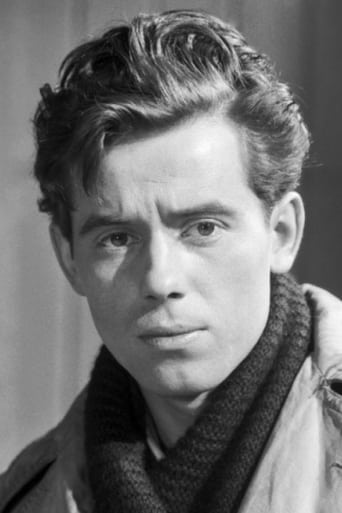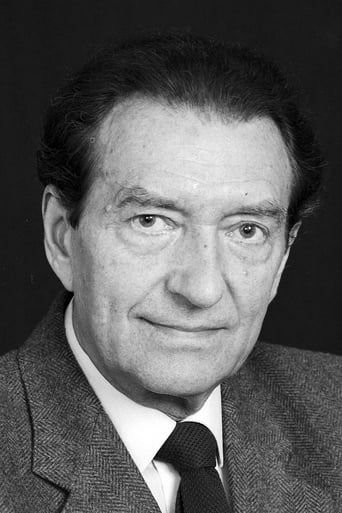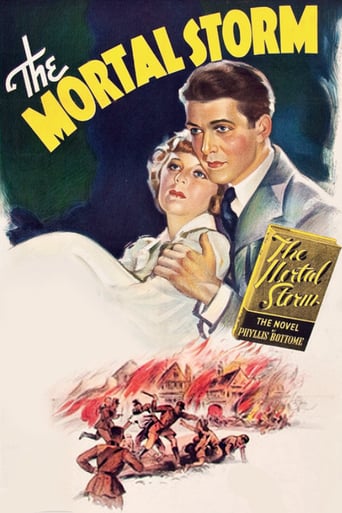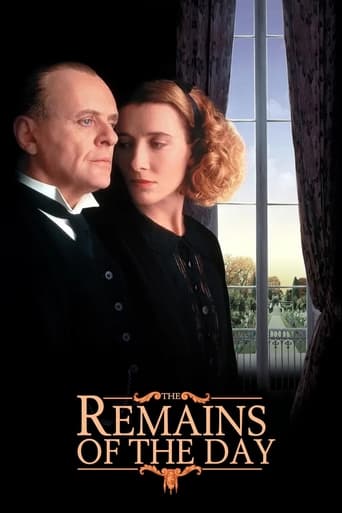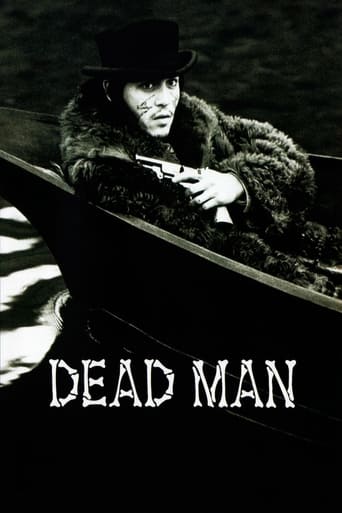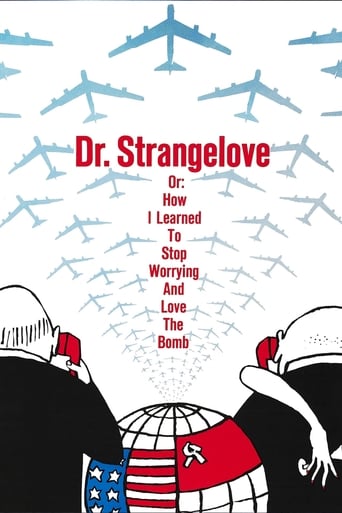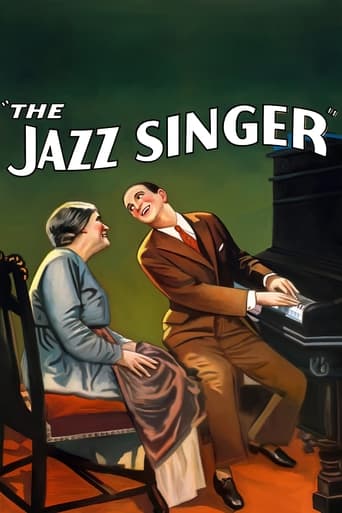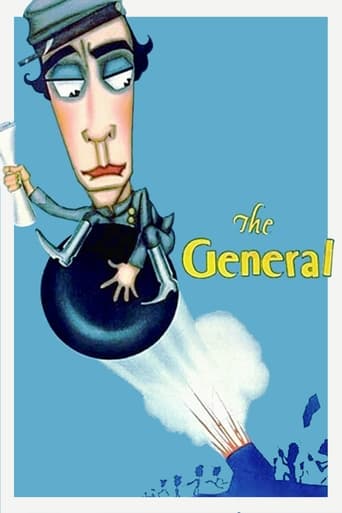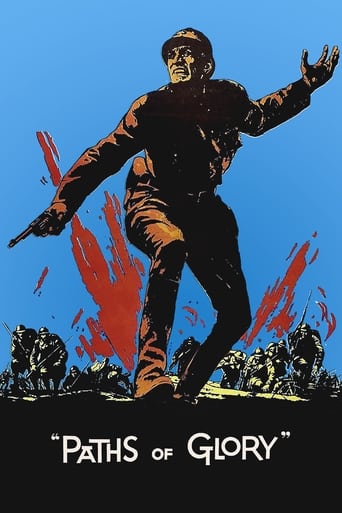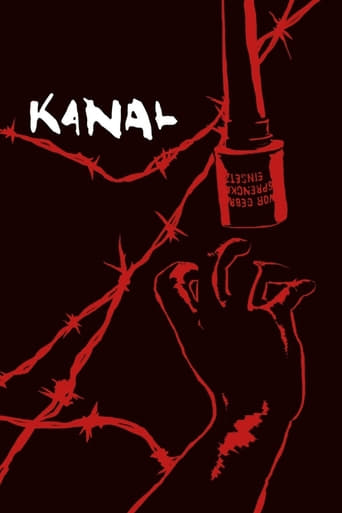
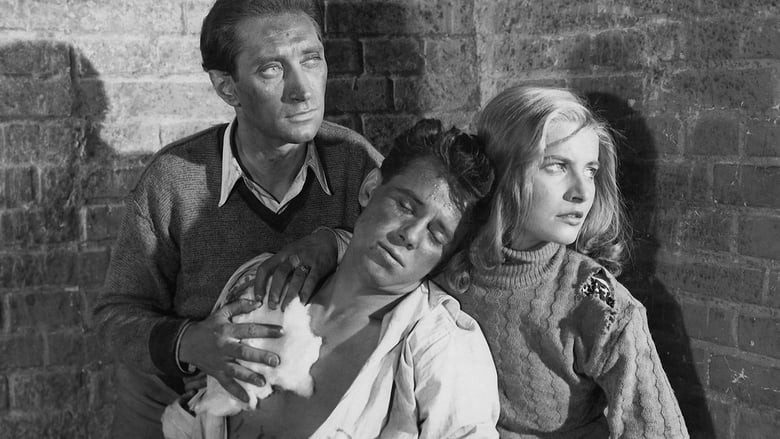
Kanal (1957)
During the last few days of the Warsaw Uprising following World War II, a modest group of Resistance members remains. The band must take refuge in the sewers under the orders of leader Zadra, but it's only a matter of time before they will have to emerge. However, when they try, they are met only with intense hostility from the Nazis. Despite their attempts stay resolute through immense mental strain, it becomes increasingly apparent that they may be doomed.
Watch Trailer
Cast


Similar titles
Reviews
In 1944, Polish resistance fighters descend into Warsaw's sewers to escape occupiers from Nazi Germany. This excellent film noticeably lacks scenes which may have explained some leaps in the storyline; it often feels like a part of the story is missing, and separate character groups apparently just miss each other in the underground. Specifically, there is no good sense about the passage of time between scenes and events, sometimes regarding signposts in the sewer.However, this does not diminish the film's impact. Director Andrzej Wajda and cinematographer Jerzy Lipman succeed in taking us through the intestines of war. The film includes several emotional endings, but the final scenes of wounded young soldier Tadeusz Janczar being led to his symbolic prison by powerful blonde girlfriend Teresa Izewska is most memorable. Hopelessly pessimistic, like the other doomed resisters, "Jacek Korab" escapes by the only means possible.******** Kanal (4/20/57) Andrzej Wajda ~ Tadeusz Janczar, Teresa Izewska, Wienczyslaw Glinski, Vladek Sheybal
In the 1944 Warsaw uprising, a Polish anti-Nazi resistance unit take refuge from their enemies in the city's system of sewers. Polish critics state that the film paved the way for other films of the Polish School of filmmakers.Kanal is an underrated entry in director Andrzej Wajda's war trilogy, but there is an extraordinary sense of claustrophobia in the dark, dark tunnels beneath Warsaw, and the heroism of these beleaguered partisans is stirring. Their fear of being discovered creates heart-stopping tension. Kanal earned Wajda the Special Jury Prize at the 1957 Cannes Film Festival, solidifying his position as Poland's premier director.
Did Andrzej Wajda predict the modern horror film? Or was he merely acting on--and manipulating--our fear of the big, scary monster? There are many shots in KANAL where the camera will simply stay on a passageway seconds after the survivors leave the shot. As a modern audience who has lived through horror films, we expect a Nazi or a monster to slip into the frame in the background, but it never does. KANAL truly is a horror film, but what's unbearable to us and the sturdy group of Resistance fighters isn't the Nazis above the sewers or the metaphorical monster, but it is the solitude and emptiness that drives them to insanity, death or a bitter end.KANAL is Andrzej Wajda's dirty, bloody valentine to the heroes of the 1944 Warsaw Resistance as the film follows the last hours of a band of heroes in their ultimately futile attempt to escape the Nazis through the labyrinth of underground sewers. We are first introduced to them as strong, willful humans trying to survive in a world that's falling to ruins (One could also argue that Andrzej Wajda also created the first post-apocalypse film). They laugh, they love, they play music in the last happy moments of their lives. After they enter the sewers, we expect and want them to come out even more strong-willed than ever--how many people can face dead bodies floating in the water of a dirty sewer with the same calm defiance? But as time goes on and the group gets separated, it becomes more and more inevitable that these heroes are not meant for a Hollywood's movie's happy, redemptive ending.Andrzej Wajda, like Roman Polanski, was a real survivor of the Nazi invasion of Poland during WWII, and both became filmmakers who brought their experiences to films, as Polanski did with Oscar-winning THE PIANIST. However, Polanski's film, though absolutely profound, doesn't have Wajda's eye for details--the scenes of ruined Warsaw, for example, seem almost CGI'ed and it's obvious that he's trying to go for more, while Wajda will focus solely on the dirty ground, the debris blowing in the wind, or the flames of a burning building in the background. With Wajda, less is much more effective. If there is a situation more dirty, awful, lonely, scary or haunting than these people making their way through the labyrinths, I have yet to see it.
This is certainly NOT a feel-good film, as it deals with the horrors of the Nazis and their crushing of the Warsaw uprising of 1944. After all, there is no way or reason to make this a nice or fun movie to view. It just isn't possible. BUT, we are treated to an intensely realistic and viscerally disturbing film showing the war in all its awfulness. The first portion of the film is set in crumbling buildings and the nobility of the cause is apparent. However, the vast majority of the film is set in the sewers (hence the title "Kanal") and the characters, over time, lose some of their nobility and just ache to survive. The film is intensely claustrophobic and the filth they move about in literally looks like raw sewage--so as the characters fight for life and, in most cases, give up hope, you find yourself being pulled into their world and their terror. A great, though intensely awful film to watch. So, it comes as no surprise that I would not recommend this film to children or people afflicted with claustrophobia.PS--if the musician seems familiar, it's because Wladyslaw Sheybal (also known as "Vladek Sheybal") is one of the Bond Villains in the movie FROM Russia WITH LOVE.


